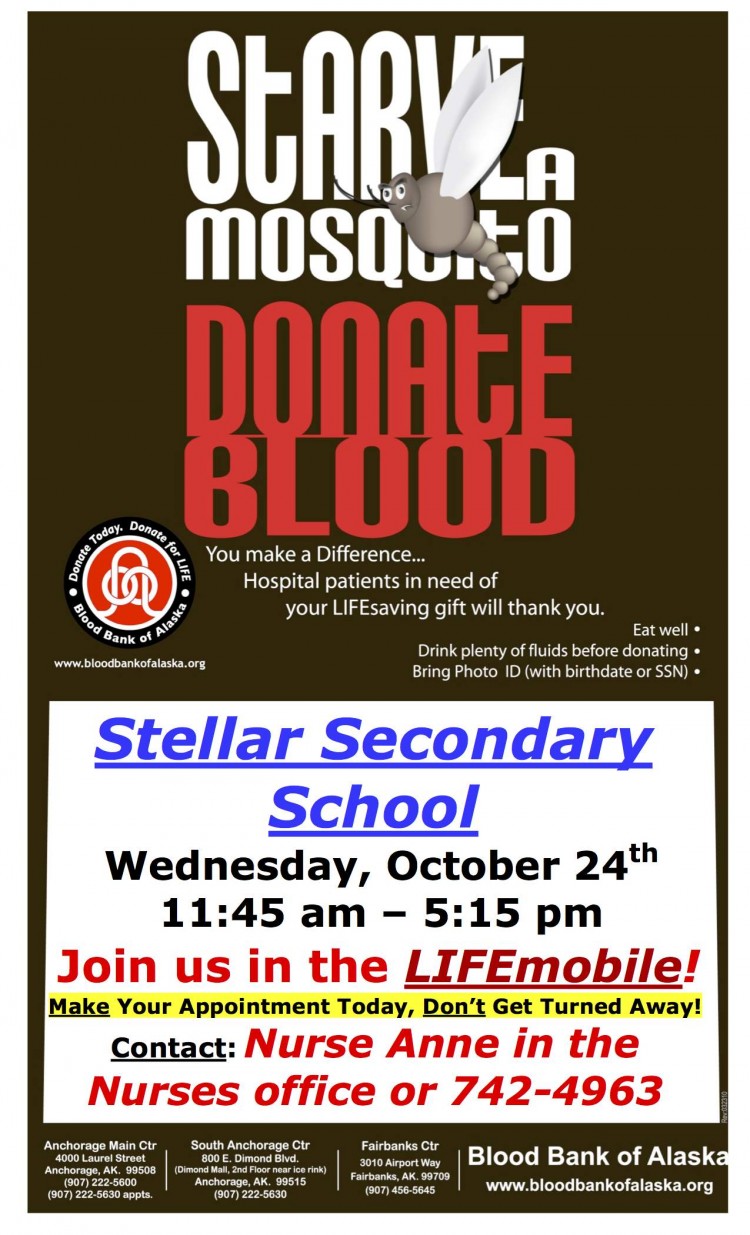Parents and Students,
Since Red Ribbon week is a short week, I  has scheduled speakers for this Wednesday, right after school in the MPR. Speakers will include one of the security resource officers assigned to Steller, either Officer Yoon or Officer Winborg, and an active duty National Guardsman named Derrick Green. Derrick is an experienced community speaker on drug issues. The speakers will answer your questions and address your comments from the drug survey the Steller students completed. These questions and comments were forwarded to the presenters last week  They will be happy to answer any other question you might have.  Derrick is excited about the question answer format and is eager do some research to give you the most up-to-date information. The SRO will give you information on the implications of “being under the influence at school.” The speakers are open minded and intent on sharing the truth with you. They appreciate your forthright comments and challenging questions. Snacks will be provided for those students who get there early.
Don’t forget that the blood drive is October 24th from 11:45 to 5 pm. Time slots for the draws are every 15 minutes and most of the slots are still open. Â I only have four people signed up so far and three of them are students. Students, Â if you are 16 and have parental consent (Parental Consent Form) you can donate, if you are not old enough, please encourage your parents to donate. Parents, as soon as you schedule your parent conference time (if you have not already), schedule a time with me for a blood donation (742-4963). The following is just a little information about giving blood:
Annually approximately, 12.6 million units of blood are given. Under normal circumstances, every two seconds someone in America will need a blood transfusion. Transfusions are used for trauma victims – due to accidents and burns – heart surgery, organ transplants, women with complications during childbirth, newborns and premature babies, and patients receiving treatment for leukemia, cancer, or other diseases, such as sickle cell disease. People with O negative blood are particularly in demand because they are the “universal donor.” That means that people of all blood types can receive O negative blood safely, so it is used during life-threatening emergencies or when the matching blood type is in short supply. Donating is not painful. There are only two very fast feelings of a pinching sensation when the needle pricks the arm to insert the needle and to collect the blood. From that point on there is not be any pain in the process. The entire procedure usually takes less than 45 minutes. Make certain you are well hydrated and have eaten a little before you come. Donating saves lives and donors are heroes.
Thanks for your attention.
Anne
Steller Secondary School Nurse

